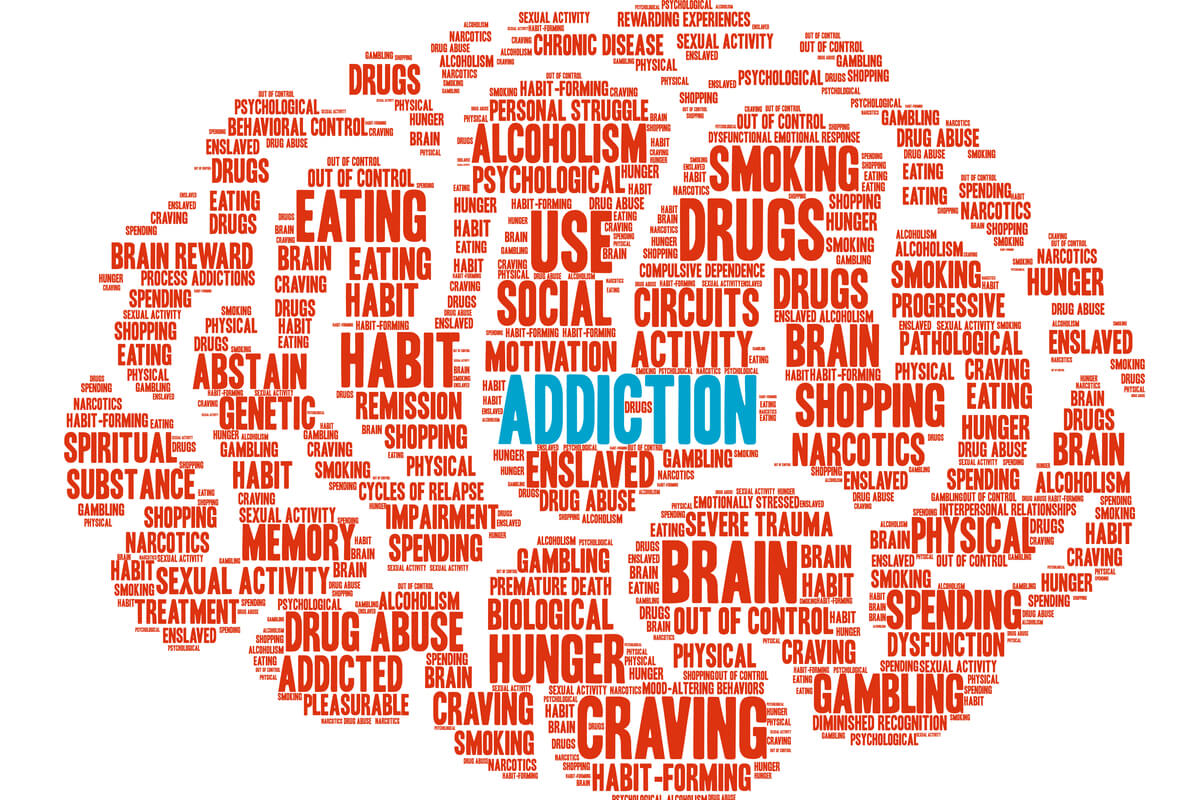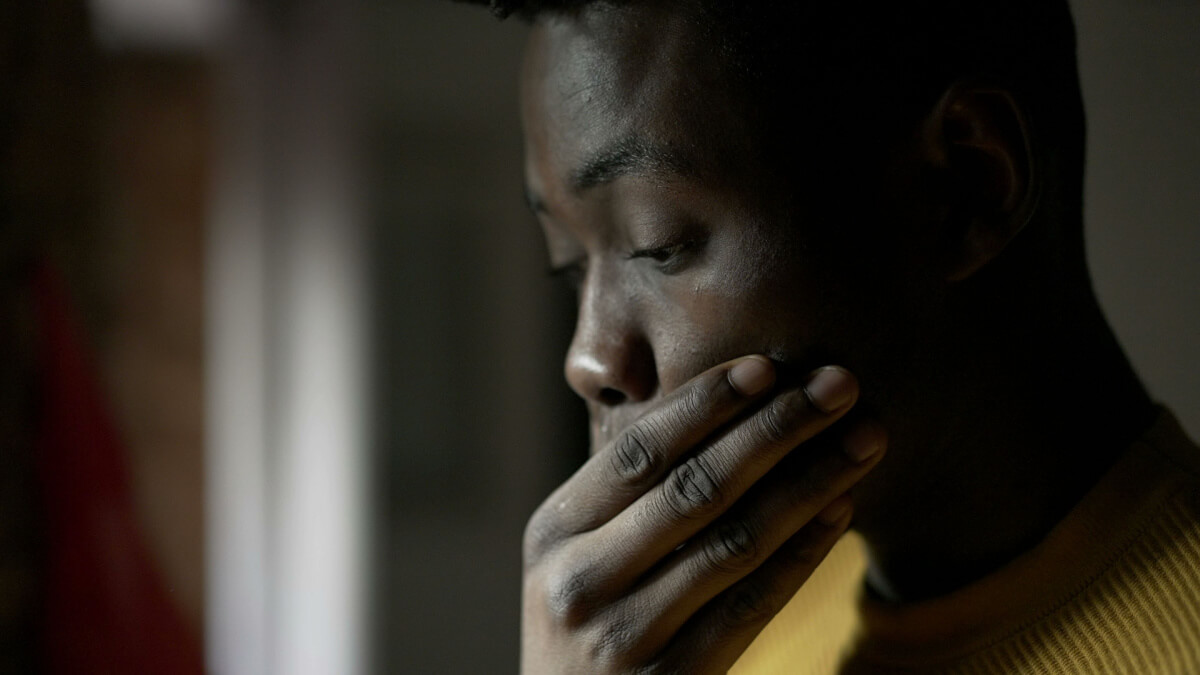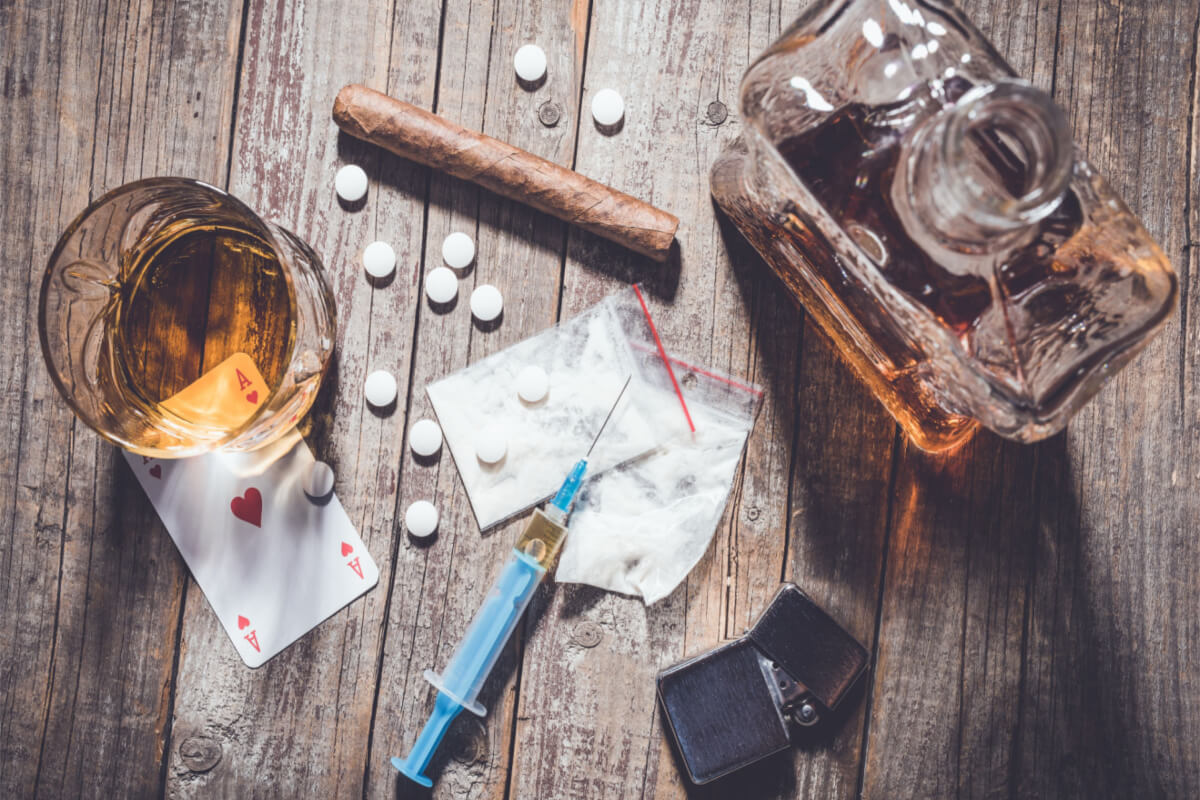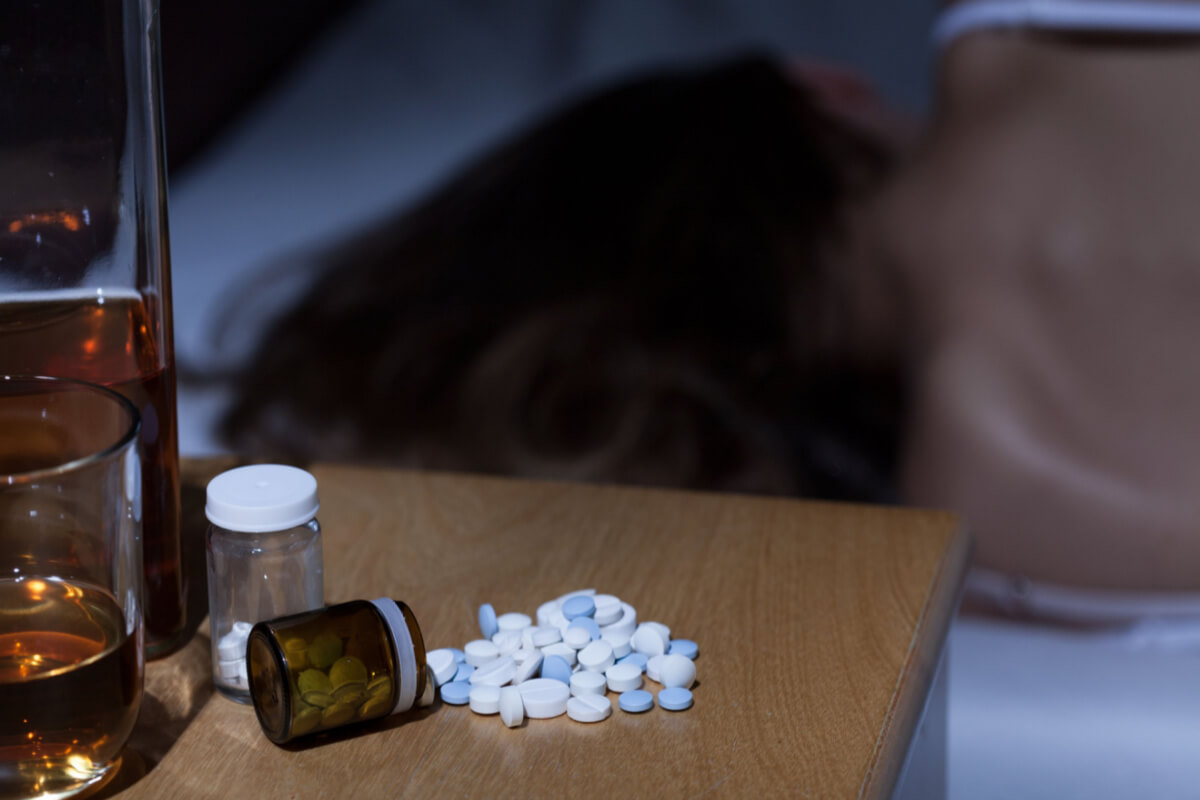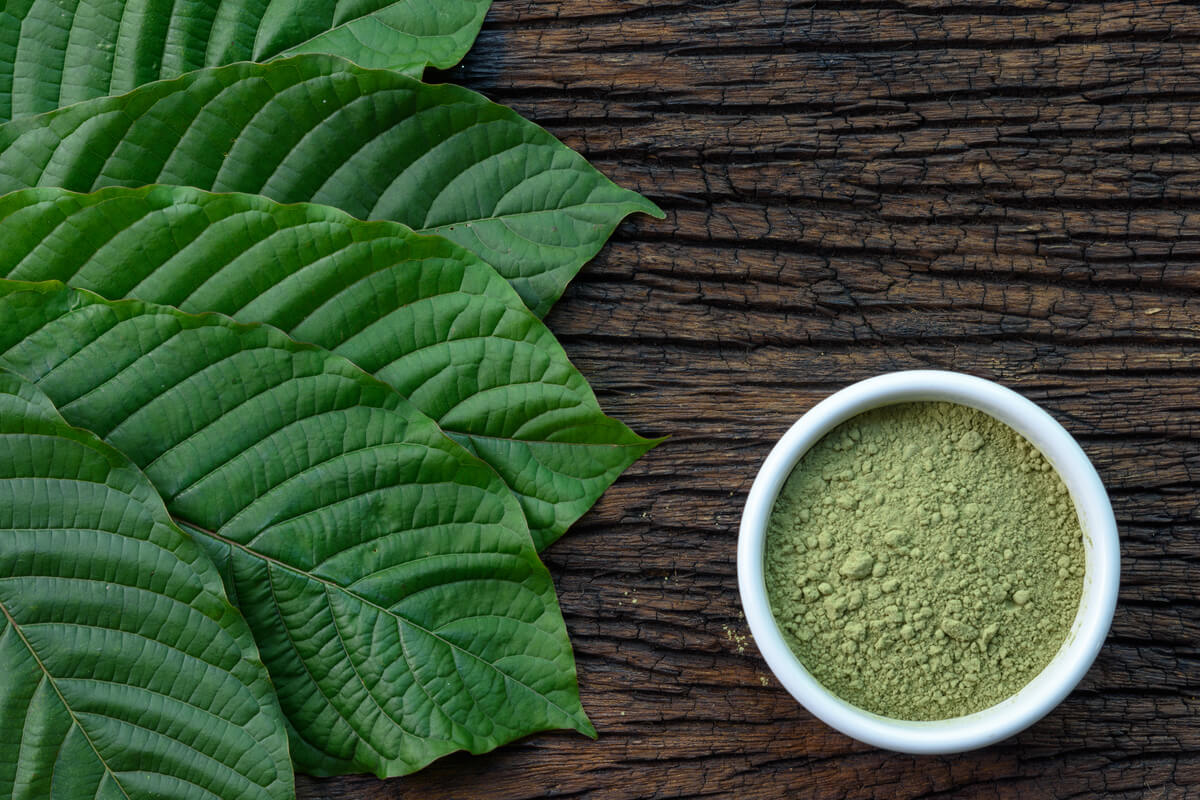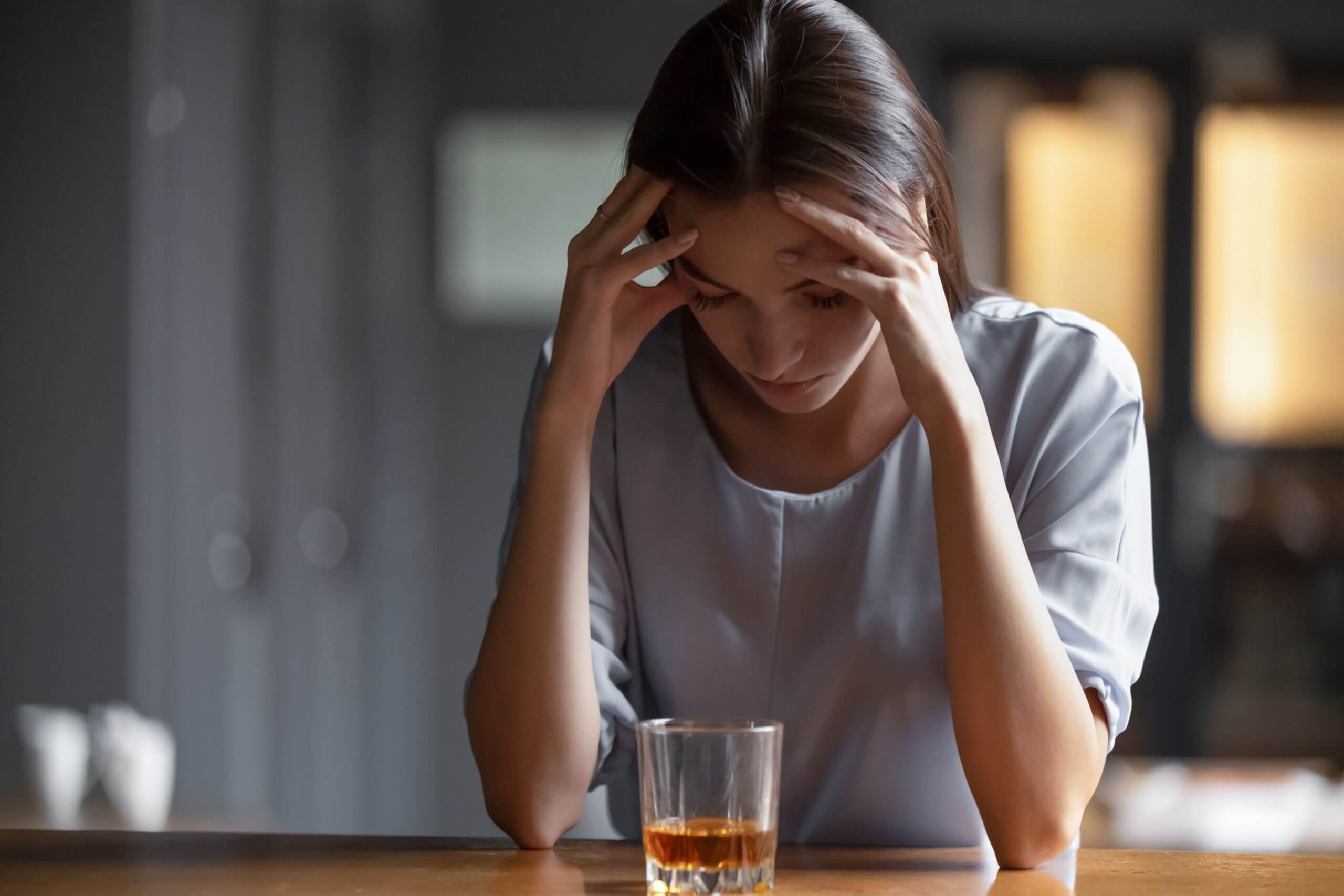
Depression and substance use often appear together. Between 20% and 70% of people with depression also have a substance use disorder (SUD).[1]
Depression is a mental illness that affects almost 4% of the population.[2] People with depression experience more than a transient low mood. They can feel crippling sadness, exhaustion, and fatigue and can have trouble motivating to complete even basic tasks such as basic hygiene or other self care. Without treatment, depression can worsen and cause medical issues. Almost 13% of visits to the emergency department are caused by a condition attributable to depression.[3] People with severe depression are at risk for self harm or suicide.
Some people have depression that leads to a substance use disorder. Others have an SUD that triggers depression.
No matter how these issues began, they can be treated. But the most effective programs address both problems at the same time.
What Is Depression?
We’ve all experienced sadness, grief, or disappointment. Depression is different. People with depression have extreme levels of sadness that last for weeks at a time and impede their ability to live a healthy, active life.[4]
People with depression may not feel well enough to reach out to doctors and ask for help. They may not realize that their symptoms are caused by a mental illness, not a lack of willpower.
As a result, depression is often undertreated. One study of patients in the UK found that 75% of people with depression go undiagnosed or untreated.[5]
People with depression may try unhelpful techniques to help them feel better, including using drugs or alcohol.
Types of Depression
There are five different types of depression according to the National Institute of Mental Health (NIMH) [6]
Major Depressive Disorder
Major depression involves severe symptoms that persist for at least two weeks and interfere with a person’s ability to handle everyday life. Doctors sometimes call this condition clinical depression.
Persistent Depressive Disorder
This form of depression involves more moderate symptoms lasting a longer period of time (by definition, at least two years). Doctors sometimes call this condition dysthymia.
Perinatal/Postpartum Depression
This form of depression occurs shortly before or after a woman gives birth, and it’s typically influenced by fluctuating hormone levels. Doctors sometimes call this condition postpartum depression, and it’s serious. A depressed mom can neglect or in rare instances even harm herself or her baby if she is experiencing severe postpartum depression.
Seasonal Affective Disorder
People with this condition, sometimes known by the acronym SAD, struggle with the dark days of winter. Depression symptoms appear in the late fall and early winter, and they tend to fade during the spring and summer. Depression in the winter can make it hard for people to enjoy the holiday season, and some dread the change of the seasons, as they know it will harm their mental health.
Depression With Symptoms of Psychosis
This form of depression involves traditional symptoms of depression accompanied by delusions or hallucinations. People may see or hear things others cannot (hallucinations), and they may develop fixed or false beliefs about the world around them (delusions).
Manic Depression
Also called bipolar disorder, this is a syndrome that is often genetic and runs in families characterized by periods of mania or hyperactivity followed by periods of depression.
Common Symptoms of Depression
Doctors look for a specific set of signs and symptoms to diagnose depression. Typically, people must have symptoms for at least two weeks, and the problems must be severe before a doctor will offer a true depression diagnosis.[7]
Common signs include the following:
- A low or depressed mood
- Lack of interest in things you once enjoyed
- Weight loss or gain unrelated to dieting
- Insomnia or sleeping too much
- Lack of energy
- Frequent purposeless activities, such as wringing your hands or fidgeting
- Remarkable slowdowns in speech or movements
- Difficulty thinking or concentrating
- Suicidal thoughts
People with a low mood may have similar symptoms, but they tend to fade in a few days or weeks.[8]
Self-assessment tests like this one can help you understand if you’re struggling with depression symptoms.[9] While a test can’t diagnose disease, the results could help you understand if it’s time to talk with your doctor and get treatment.
Depression & Substance Use: How Are They Related?
Depression and SUD are both mental health conditions, and their relationship is complex and bidirectional.[10] It’s like asking “which came first, the chick or the egg?”.
Some drugs, including opioids, cause cellular damage that can actually lead to depression. Many patients experience their first episode of major depression after using various substances including alcohol, marijuana or other “hard” drugs.
Conversely, people with depression may develop a SUBD because they first use alcohol or drugs to self-medicate depressive symptoms. Drinking alcohol or using drugs seems to make them feel better temporarily so they return to those substances repeatedly. In time, physiologic dependence and addiction can develop.
While it’s not easy to determine which condition came first, it’s clear they often develop together. In studies, researchers found that 93% of people with SUD had symptoms of depression, and 72% of them had severe symptoms.[11]
Moreover, people with both depression and SUD have a higher risk of suicide than either condition alone. [12]
Risk Factors for Depression & SUD
Risk factors for depression include the following:[7]
- A family history of depression
- Low self-esteem
- A low stress threshold
- Exposure to violence, neglect, or abuse
Risk factors for SUD include the following:[13]
- Early substance misuse
- A family history of substance use disorder
- Exposure to conflict, abuse, or neglect
- A childhood characterized by problem behavior, poor performance in school, harsh punishments, and normalization of substance abuse
- Access to substances in the community
- Low income
Some of these risk factors overlap. People with adverse childhood events or shared genetic vulnerabilities may be prone to both problems.
Treatment for Depression & Co-Occurring SUD
It’s critical to treat depression and SUD at the same time. Treating one while ignoring the other can make it more difficult to heal properly from either condition. Narrowing treatment gaps can ensure that people get the help they need.[14] SUDs benefit from the same approach.
Your treatment might involve three components:
Medications
People addicted to opioids or alcohol can benefit from medications. Therapies approved by the U.S. Food and Drug Administration ease brain imbalances caused by SUD.
Teams use these medications to help people avoid withdrawal and maintain their sobriety. Medications have been proven effective for people with SUD, particularly methadone and Suboxone [15]
In addition, there are dozens of medications that can be used to treat depression. Some big categories include SSRIs, SNRIs, tricyclic antidepressants, monoamine oxidase inhibitors, and antipsychotics.
Therapy
Overcoming a SUD means developing psychological tools in these areas:
- Self-awareness: Understand when cravings and urges hit and how they feel in your body.
- Self-instruction: Understand how to coach yourself through cravings, so you won’t use again.
- Risk reduction: Know what people, places, and things to avoid to reduce relapse risks.
Cognitive behavioral therapy (CBT) involves teaching people these skills through a series of individual or group sessions with a licensed therapist.[16] This same approach could be helpful for people with depression.
An analysis of 115 studies demonstrated that CBT is extremely helpful for people with depression.[17] Sessions could help you eliminate negative self-talk, care for yourself on a difficult day, and limit your exposure to triggers.
Social Support
Social isolation is closely linked to depression.[18] People with SUD may struggle to maintain relationships with others. Ensuring strong social support it one of the most important variables in successful recovery from either depression, SUD, or both. For some, family and friends may be sufficient. For others who don’t have a robust family or friend group, 12-step groups like Narcotics Anonymous or AA or other community groups can be helpful.
Ask for Help
If you are struggling from a SUD that is spurred by depression or vice versa, treatment for both conditions is available. Talk to your medical team. Together, you can find a treatment plan that’s right for you.

Medically Reviewed By Elena Hill, MD, MPH
Elena Hill, MD; MPH received her MD and Masters of Public Health degrees at Tufts Medical School and completed her family medicine residency at Boston Medical Center. She is currently an attending physician at Bronxcare Health Systems in the Bronx, NY where ... Read More
- Substance Abuse and Depression. Psycom. https://www.psycom.net/depression/depression-and-substance-abuse. September 2022. Accessed January 2023.
- Depression. World Health Organization. https://www.who.int/news-room/fact-sheets/detail/depression. September 2021. Accessed January 2023.
- Depression. Centers for Disease Control and Prevention. https://www.cdc.gov/nchs/fastats/depression.htm. December 2022. Accessed January 2023.
- Depression. American Psychological Association. https://www.apa.org/topics/depression. Accessed January 2023.
- Medical Research: If Depression Were Cancer. Nature. https://www.nature.com/articles/515182a. November 2014. Accessed January 2023.
- Depression. National Institute of Mental Health. https://www.nimh.nih.gov/health/topics/depression. September 2022. Accessed January 2023.
- What Is Depression? American Psychiatric Association. https://www.psychiatry.org/patients-families/depression/what-is-depression. October 2020. Accessed January 2023.
- Low Mood and Depression. National Health Service. https://www.nhsinform.scot/healthy-living/mental-wellbeing/low-mood-and-depression/low-mood-and-depression/. January 2023. Accessed January 2023.
- Depression Self-Assessment. Kaiser Permanente. https://healthy.kaiserpermanente.org/health-wellness/depression-care/assessment. March 2020. Accessed January 2023.
- Alcohol, Substance Abuse, and Depression. Mental Health America. https://www.mhanational.org/alcohol-substance-abuse-and-depression. Accessed January 2023.
- Assessment of Anxiety and Depression Among Substance Use Disorder Patients: A Case-Control Study. Middle East Current Psychiatry. https://mecp.springeropen.com/articles/10.1186/s43045-020-00029-w. June 2020. Accessed January 2023.
- Depression, Substance Abuse, and Suicide Risk: A Rising Problem. Addictive Disorders and Their Treatment. https://www.ingentaconnect.com/content/wk/addit/2019/00000018/00000002/art00006. June 2019. Accessed January 2023.
- Risk and Protective Factors for Substance Use. Family and Social Services Administration. https://www.in.gov/fssa/dmha/substance-misuse-prevention-and-mental-health-promotion/risk-and-protective-factors-for-substance-use/. Accessed January 2023.
- Depression: More Treatment but No Drop in Prevalence. Current Opinion in Psychiatry. https://journals.lww.com/co-psychiatry/Abstract/2019/07000/Depression__more_treatment_but_no_drop_in.15.aspx. July 2019. Accessed January 2023.
- Medication-Assisted Treatment (MAT). Substance Abuse and Mental Health Services Administration. https://www.samhsa.gov/medication-assisted-treatment. January 2023. Accessed January 2023.
- Treating Substance Misuse Disorders with CBT. Beck Institute. https://beckinstitute.org/blog/treating-substance-misuse-disorders-with-cbt/. June 2021. Accessed January 2023.
- Cognitive Behavioral Therapy for Depression. Indian Journal of Psychiatry. https://www.ncbi.nlm.nih.gov/pmc/articles/PMC7001356/. January 2020. Accessed January 2023.
- The Risks of Social Isolation. American Psychological Association. https://www.apa.org/monitor/2019/05/ce-corner-isolation. May 2019. Accessed January 2023.
Download Our Free Program Guide
Learn about our program, its effectiveness and what to expect
Related articles
Imagine what’s possible on the other side of opioid use disorder.
Our science-backed approach boasts 95% of patients reporting no withdrawal symptoms at 7 days. We can help you achieve easier days and a happier future.


